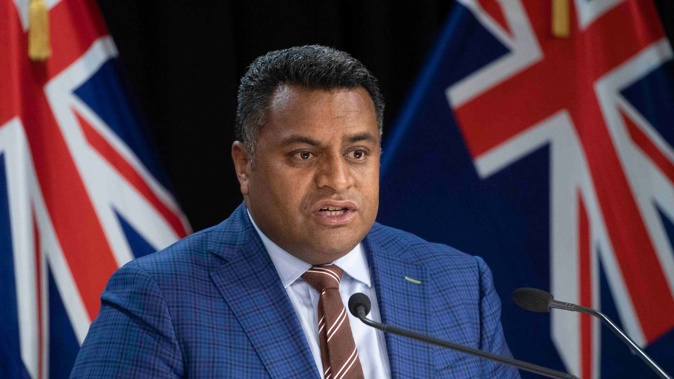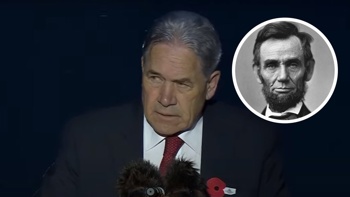
National says it will block changes to electoral laws that currently mean Māori can only switch electoral rolls once every five to six years, which proponents have labelled "racist".
The Government has today announced a proposal to make it easier for Māori to change whether they vote for candidates in Māori or general electorate seats.
But National remains opposed to the current form of the proposal, which requires support from both major parties to succeed.
It comes as Te Pāti Māori co-leader Rawiri Waititi's Members' Bill was incidentally drawn from the ballot today which has been calling for the very changes being suggested.
Currently, Māori can only elect to switch rolls once every five to six years, based around Census results, despite elections occurring every three years.
The last Māori Electoral Option was in 2018 and the next is due in 2024.
Waititi has previously called the rule "racist" and said it blocked Māori from having greater democratic participation as, if they were on the wrong roll, it would take years to correct. His Members' Bill would also make it easier to switch rolls.
Justice Minister Kris Faafoi today announced a bill would be introduced to the House in the coming weeks.
"This work follows through on our 2020 election commitment to protect the integrity of New Zealand elections and is part of our ongoing work to modernise the Electoral Act so they remain fit for purpose and meet the needs of the next generation of voters," Faafoi said.
"By allowing Māori to change rolls at any time, up to and including on polling day, it provides Māori with flexibility and promotes participation in New Zealand's democracy.
"By removing the restrictions that currently lock Māori voters in their roll choice for two general elections, this change represents a significant improvement to a status quo that prevents Māori voters from fully exercising their electoral rights."
Ministry of Justice research and reports by the Justice Select Committee and the Electoral Commission had identified issues around the timing.
"The current restrictions on timing and frequency of the Option are unjustified, unfair, and often difficult to understand," Faafoi said.
While the law change will allow Māori voters to change rolls at any time, there will be an exception preventing voters from switching rolls to vote in byelections, he said.
The Bill will make the Māori Electoral Option a "continuous option", and is expected to come into force in March 2023 in time for the 2023 General Election.
However, as it requires changes to the calculation of the Māori electoral population it also requires changes to the Electoral Act, which requires a 75 per cent majority or a referendum, meaning it would need support of National to pass.
National's justice spokesman Paul Goldsmith said his party opposed the changes in their current form as he believed the "continuous option" could risk people "gaming" the system.
Goldsmith said this could occur by people switching rolls in situations of a byelection, at the general election to vote in marginal seats and local government level.
"You could easily exclude switching three months or four months before a general election or before local elections. That's a suggestion we're making."
Goldsmith said moving away from synergy with Census results risked affecting the proportionality of seats.
"We've had this system in place where the Māori roll is determined by the census every five years. And it's very important to maintain proportionality through the voting arrangements."
Māori Development Minister Willie Jackson said National was simply on the "edges of playing the Māori card".
"They are wondering if there are votes in going against Māori initiatives and issues. They are playing around, half supporting us, so we will see where they go."
Te Pāti Māori co-leader Rawiri Waititi said Māori were currently being blocked from their right to choose to be on the Māori roll, aside from in that four-month window every five to six years.
His Members' Bill would allow Māori to change between the Māori and general electoral rolls at any time.
It would also change the requirement to redraw electoral boundaries to a set date two years after each general election, automatically place Māori on the Māori electoral roll if unspecified, and change the name of "general electoral district" to "non-Māori electoral district".
Green Party justice spokeswoman Golriz Ghahraman is also pushing for similar changes through her own Members' Bill.
Act leader David Seymour has said he had received the draft bill from Faafoi.
"We will consider it in Caucus before offering our feedback," Seymour said.
"We're open to flexibility, but not at the expense of a free and democratic electoral system," he said.
Take your Radio, Podcasts and Music with you









